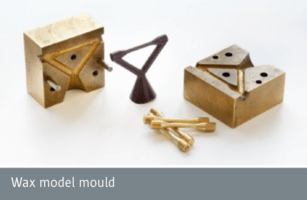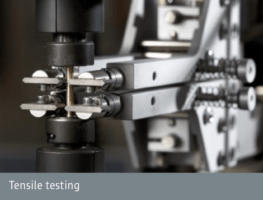 Mechanical properties describe a material’s response when exposed to various mechanical impacts such as tension, pressure or deflection or even temperature change. As such they are crucial in evaluating the quality of a dental material or indeed any material.
Mechanical properties describe a material’s response when exposed to various mechanical impacts such as tension, pressure or deflection or even temperature change. As such they are crucial in evaluating the quality of a dental material or indeed any material.
To get an insight into the topic mechanical properties, there are many concepts that must be understood in order to make correct selections of materials for dental restorations. Properties like elasticity, plasticity, brittleness, ductility, fracture toughness and strength may differ widely from one material to another. This may be due to differences in grain or atomic structure or in chemical composition. Restorations require properties suited to their specific use. Particularly, when a restoration is a combination of different materials, an appropriate match between the mechanical properties of the materials is necessary to achieve a well-functioning and long-lasting restoration.
NIOM possesses equipment for mechanical testing of dental materials. Whether it concerns polymer-based materials, metals, alloys, cements or ceramics, we are able to offer testing of the elastic, plastic and fracture properties of a dental material.
 The mechanical tests are performed at NIOM on two universal test machines; a Zwick 10 kN instrument with macro extensometer and a Lloyd LRX 2.5 kN table top machine. The Zwick machine is calibrated to class 0.5 and the Lloyd machine to class 1. This means that the accuracy of measurement is better than ± 0.5% and ± 1%, respectively. Testing is performed in accordance with international (ISO) standards, for which NIOM is accredited for a range of test methods of mechanical properties. These cover biaxial or 3-point flexure tests, bond strength between metals or high-strength ceramics and porcelain, bonding of artificial teeth to denture base materials, adhesion of bonding materials to dentin or enamel in addition to traditional tensile and compression measurements.
The mechanical tests are performed at NIOM on two universal test machines; a Zwick 10 kN instrument with macro extensometer and a Lloyd LRX 2.5 kN table top machine. The Zwick machine is calibrated to class 0.5 and the Lloyd machine to class 1. This means that the accuracy of measurement is better than ± 0.5% and ± 1%, respectively. Testing is performed in accordance with international (ISO) standards, for which NIOM is accredited for a range of test methods of mechanical properties. These cover biaxial or 3-point flexure tests, bond strength between metals or high-strength ceramics and porcelain, bonding of artificial teeth to denture base materials, adhesion of bonding materials to dentin or enamel in addition to traditional tensile and compression measurements.
A Zwick instrument for non-accredited hardness determination by Vickers, Brinell or Knoop hardness measurement methods, with loads from 10 g to 30 kg, is also available.
